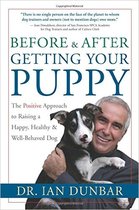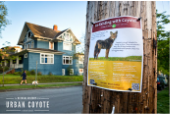These articles, links and files are yours to use and share. Note that this page does not require a password, but isn't visible from the home page. To share, just copy the link below:
http://www.drewwatsonpups.com/client-resources.html
http://www.drewwatsonpups.com/client-resources.html
PUPPY 911!
Have a new puppy? Planning for one? Overwhelmed? Start here!
Free e-books by renowned trainer & behaviorist Dr. Ian Dunbar:
BEFORE You Get Your Puppy and AFTER You Get Your Puppy
Have a new puppy? Planning for one? Overwhelmed? Start here!
Free e-books by renowned trainer & behaviorist Dr. Ian Dunbar:
BEFORE You Get Your Puppy and AFTER You Get Your Puppy

Short, easy to read, a great resource. These are older versions of the updated and indispensable
Before and After Getting a Puppy.
I also like Puppy's First Steps (concise, well organized, easy to find locally).
FOR ALL DOGS!
If I only read one book ever on training, behavior and how dogs learn: The Culture Clash by Jean Donaldson. If you're thinking of skipping this one, please reconsider...
"I'm loving this book! I wish I'd read it when we first brought Mike home. You probably suggested it, but I didn't listen. It totally changed my understanding of our relationship with dogs. Everyone who has a dog should read this book!" -Bray Poor (NYC)
Any title by Dr. Ian Dunbar, Patricia B. McConnell, PhD, Alexandra Horowitz or Victoria Stilwell is highly recommended.
Before and After Getting a Puppy.
I also like Puppy's First Steps (concise, well organized, easy to find locally).
FOR ALL DOGS!
If I only read one book ever on training, behavior and how dogs learn: The Culture Clash by Jean Donaldson. If you're thinking of skipping this one, please reconsider...
"I'm loving this book! I wish I'd read it when we first brought Mike home. You probably suggested it, but I didn't listen. It totally changed my understanding of our relationship with dogs. Everyone who has a dog should read this book!" -Bray Poor (NYC)
Any title by Dr. Ian Dunbar, Patricia B. McConnell, PhD, Alexandra Horowitz or Victoria Stilwell is highly recommended.
ON ALPHA...
Why your family is not a "pack," you don't have to be "Alpha" and "dominance" is not a personality trait:
"Far too many times dog owners have been given advice to 'show the dog who's boss' and 'be the Alpha.' The unfortunate side effect of this thinking is that it creates an adversarial relationship. Such misinformation damages the human-dog relationship, and may lead to fear, anxiety and/or aggressive behaviors."
Expert advice from The Association of Professional Dog Trainers.
Why your family is not a "pack," you don't have to be "Alpha" and "dominance" is not a personality trait:
"Far too many times dog owners have been given advice to 'show the dog who's boss' and 'be the Alpha.' The unfortunate side effect of this thinking is that it creates an adversarial relationship. Such misinformation damages the human-dog relationship, and may lead to fear, anxiety and/or aggressive behaviors."
Expert advice from The Association of Professional Dog Trainers.
Q: Should I "Alpha roll" or pin my dog?
A: No. Never. Here's what you're really doing when you Alpha roll your dog.
Q: Is Cesar Millan (The "Dog Whisperer") a good trainer?
A: Unfortunately not. His techniques have been repeatedly shown to be dangerous, ineffective and they are not grounded in science. There's actually an entire website devoted to the subject: Beyond Cesar Millan
A: No. Never. Here's what you're really doing when you Alpha roll your dog.
Q: Is Cesar Millan (The "Dog Whisperer") a good trainer?
A: Unfortunately not. His techniques have been repeatedly shown to be dangerous, ineffective and they are not grounded in science. There's actually an entire website devoted to the subject: Beyond Cesar Millan
ON CERTIFICATION...
Q. What is a Certified Professional Dog Trainer?
A. A Certified Professional Dog Trainer is a trainer with hundreds of ours of training, education and hands-on experience. CPDTs must demonstrate a broad knowledge, be recommended by a local area veterinarian, adhere to strict ethical guidelines, pass standardized tests and demonstrate continuing education for periodic re-certification. Some CPDTs have other degrees or certifications. If you see other titles or letters associated with your trainer, it's best to check the APDT list here to find out what meaning they have, if any.
Q. What is a Certified Professional Dog Trainer?
A. A Certified Professional Dog Trainer is a trainer with hundreds of ours of training, education and hands-on experience. CPDTs must demonstrate a broad knowledge, be recommended by a local area veterinarian, adhere to strict ethical guidelines, pass standardized tests and demonstrate continuing education for periodic re-certification. Some CPDTs have other degrees or certifications. If you see other titles or letters associated with your trainer, it's best to check the APDT list here to find out what meaning they have, if any.

COYOTES!
Q. What should I do if I see a coyote with my dog?
A. Great answers here ... especially considering the many recent coyote sightings we've had in New York!
Urban Coyote Safety
Q. What should I do if I see a coyote with my dog?
A. Great answers here ... especially considering the many recent coyote sightings we've had in New York!
Urban Coyote Safety
CRATE TRAINING...
Why and how to crate train puppies and adult dogs. This is an excellent tutorial from The Humane Society.
Why and how to crate train puppies and adult dogs. This is an excellent tutorial from The Humane Society.
DESENSITIZATION & COUNTER-CONDITIONING
is the best method for helping dogs conquer their fears. Unlike punishment-based approaches, desensitization & counter-conditioning work by permanently changing a dog's emotional response to a given stimuli rather than temporarily suppressing the dog's reaction to it.
Printable .pdf on Desensitization & Counter-conditioning in Dog Training
is the best method for helping dogs conquer their fears. Unlike punishment-based approaches, desensitization & counter-conditioning work by permanently changing a dog's emotional response to a given stimuli rather than temporarily suppressing the dog's reaction to it.
Printable .pdf on Desensitization & Counter-conditioning in Dog Training
EQUIPMENT...
New dog car harness safety tests are in!
Car carrier, crate and harness safety tests and tips from Consumer Reports
New dog car harness safety tests are in!
Car carrier, crate and harness safety tests and tips from Consumer Reports

LOOSE LEASH WALKING & HOW TO STOP YOU DOG FROM PULLING
Great article and quick tutorial here by Victoria Stilwell
MOUTHY PUPPY!
What to do about mouthing, nipping and biting in puppies (from the ASPCA).
Great article and quick tutorial here by Victoria Stilwell
MOUTHY PUPPY!
What to do about mouthing, nipping and biting in puppies (from the ASPCA).
PROOFING...
One of the most important and often overlooked steps in training. Helpful article on testing your dog's recall and other behaviors in all conditions here: Does Your Dog Really Know to Come When Called?
One of the most important and often overlooked steps in training. Helpful article on testing your dog's recall and other behaviors in all conditions here: Does Your Dog Really Know to Come When Called?
PHEROMONES (DAP)
Certain pheromones, called calming or appeasing pheromones, can sometimes help relieve stressed pets. Pet pheromone products are said to mimic natural cat or dog pheromones and come in various forms, including sprays, plug-in diffusers, wipes, and collars. What pet pheromones are and how they work.
Certain pheromones, called calming or appeasing pheromones, can sometimes help relieve stressed pets. Pet pheromone products are said to mimic natural cat or dog pheromones and come in various forms, including sprays, plug-in diffusers, wipes, and collars. What pet pheromones are and how they work.
THE SENSITIVE (AKA CRITICAL) LEARNING PERIOD FOR DOGS & WHY IT'S SO IMPORTANT
Working with a young, developing puppy with gentle exposure to many different experiences in the period of 5 to 14 weeks has been shown to be an effective and proactive method to prevent behavioral problems. Positive early experiences can have a protective effect on the adult animal. It is not possible to fully recreate this important effect after around 16 weeks of age.
Working with a young, developing puppy with gentle exposure to many different experiences in the period of 5 to 14 weeks has been shown to be an effective and proactive method to prevent behavioral problems. Positive early experiences can have a protective effect on the adult animal. It is not possible to fully recreate this important effect after around 16 weeks of age.
